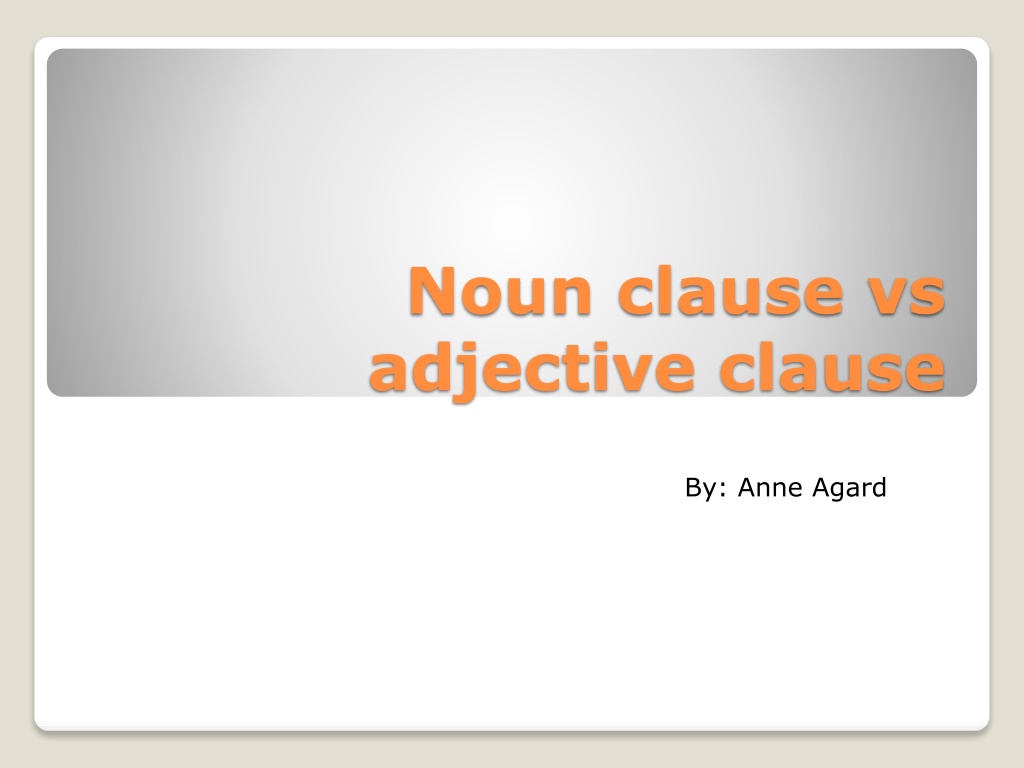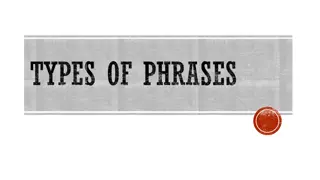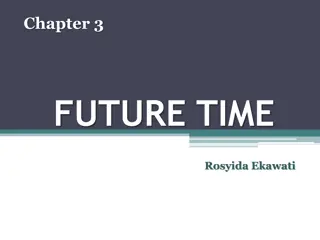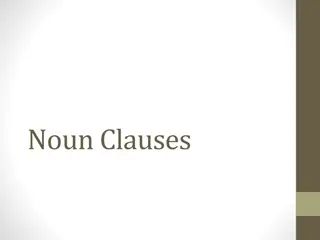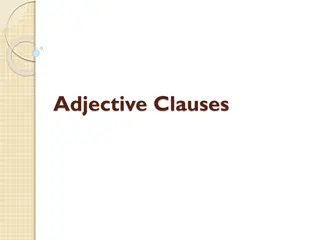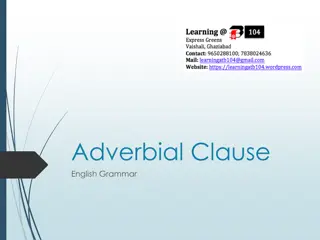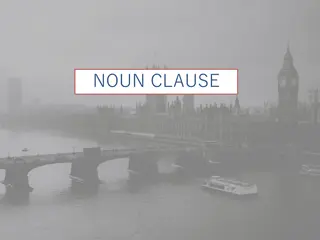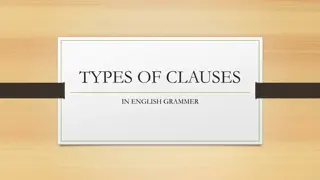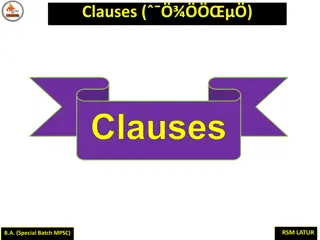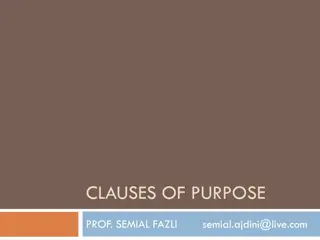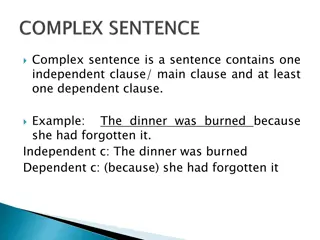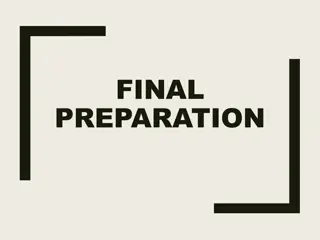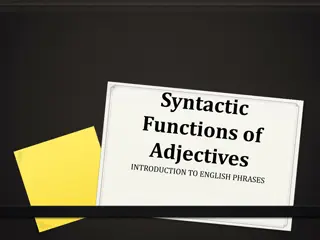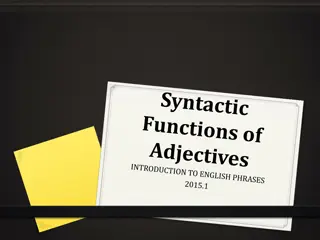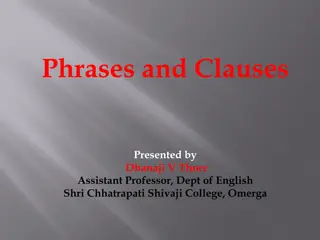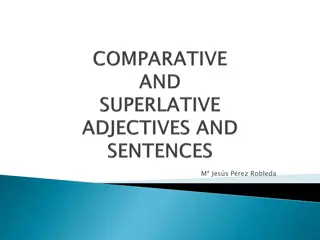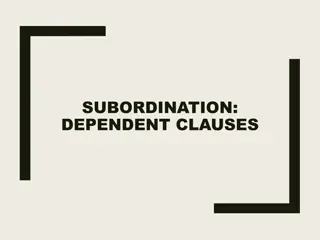Understanding Adjective Clauses and Noun Clauses in English Grammar
Learn the key differences between adjective clauses and noun clauses in English grammar. Adjective clauses describe nouns, while noun clauses take the place of a noun in a sentence, serving as either the subject or object of a verb. Discover how to identify and use these clauses effectively through examples and explanations.
Download Presentation

Please find below an Image/Link to download the presentation.
The content on the website is provided AS IS for your information and personal use only. It may not be sold, licensed, or shared on other websites without obtaining consent from the author. Download presentation by click this link. If you encounter any issues during the download, it is possible that the publisher has removed the file from their server.
E N D
Presentation Transcript
Noun clause vs adjective clause By: Anne Agard
Whats the difference between an adjective clause and a noun clause? An adjective clause describes a noun. The noun comes before the adjective clause.
For example: Write down the names of the people who are in your group. Laney College is a school that has a lot of courses. (adjective clauses)
A noun clause takes the place of a noun in a sentence. It can be the subject or object of a verb. For example: I think that grandparents should help more in raising their grandchildren. This noun clause is the object of the verb think.
If the clause follows a verb, you know that its a noun clause and not an adjective clause. A noun clause can also be the subject of the sentence: Why some people want to live in tall apartment buildings is something I ll never understand.
Using a noun clause for a subject is less common than using it for an object. It s often formal. If you see a sentence start with: who/what/when/how/where/ whether and it s an indirect question then it s a noun clause.
I dont know where he went. It is a noun clause. In this sentence, it s the object of know. The sentence is an indirect question. You often see noun clauses in indirect questions.
I wonder when the final exam is going to be. I wonder where the teacher comes from. I wonder where the teacher is. Noun clauses.
I will see you on Monday, when we will do another activity based on Exercise 5. Later I will show you pictures of the town where I am from. Adjective clauses.
I come from a town that is about two hours west of Boston. An adjective clause. I don t know how big that town is. A noun clause.
